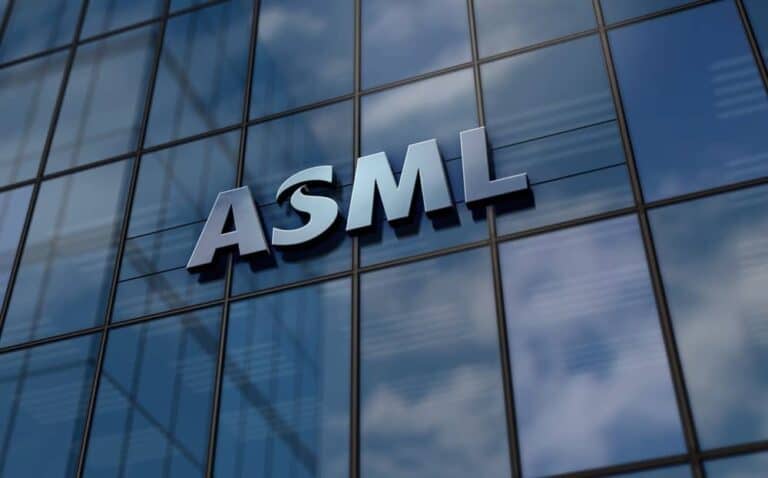ASML posted strong results in the second quarter with €5.54 billion in new orders. However, the Dutch chip machine manufacturer is not willing to guarantee growth for 2026. Geopolitical tensions and trade conflicts are casting doubt on the future.
The chaotic rollout of new trade measures is making it difficult for chip companies to plan major investments. This is causing extra caution in the market for chip manufacturing equipment, including at ASML.
“We continue to see increasing uncertainty driven by macro-economic and geopolitical developments,” says CEO Christophe Fouquet. He emphasizes that ASML is preparing for growth in 2026, but cannot confirm this at this time.
ASML’s net bookings in the second quarter were well above expectations. Analysts had expected €4.44 billion, but the company reported €5.54 billion. This performance shows that demand for advanced chip machines remains strong.
For the third quarter, ASML expects net sales of between €7.4 billion and €7.9 billion. This is below analysts’ expectations. For the full year, the company is counting on 15 percent revenue growth.
Tariff threat causes caution
ASML’s caution is linked to the threat of US tariffs. Fouquet specifically points to potential tariffs on new systems and components to the US. The possible response of other countries with retaliatory measures is also a cause for concern.
According to the CEO, these tariff threats could also hurt ASML’s gross margin. Semiconductors in particular are currently exempt from US import duties, but uncertainty about chip production equipment remains.
Despite the uncertainty, Fouquet sees positive signs. “Looking at 2026, we see that our AI customers’ fundamentals remain strong,” said the CEO. The Dutch chip equipment manufacturer is benefiting from the rise of artificial intelligence. Large technology companies are investing heavily in chips and data centers, which is driving demand for ASML’s machines.
Geopolitical pressure persists
ASML is increasingly facing geopolitical tensions surrounding the chip industry. The Netherlands recently excluded most ASML sales to China from export data for dual-use goods.
The unpredictable approach of the Trump administration is causing additional market volatility. This explains why ASML has now become more cautious with its longer-term forecasts. ASML expects market demand to remain strong in the long run due to the AI revolution. The question is whether geopolitical developments will slow or disrupt this growth.
